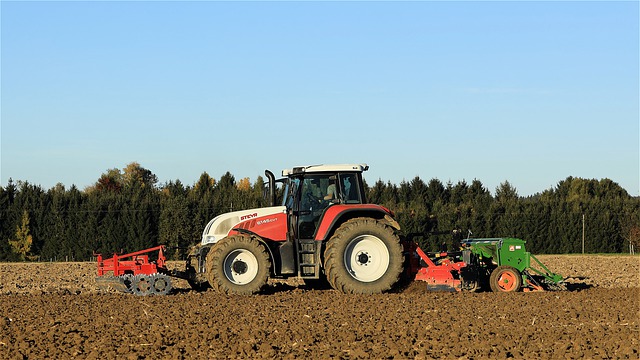Imagine as a nation being captive in a foreign land, ruled by foreign leaders, and at their whim of brutality or blessing. And then one day, it all ends. You get to come back home. The whole nation literally returns home and begins to rebuild. And when it is finally in a good place, there is massive dancing, singing, food, celebration and a whole nation giddy with joy. Their joy was so loud, and I mean loud, that the sound could be heard towns away (Neh 12:43). Now that’s a party!
But then it became a memory. Obedience to the LORD faded and so in an act of love the blessings had to be withheld. The heart’s cry rose again.
“Restore our fortunes, LORD, like watercourses in the Negev” (Ps 126:4).
Restore us like water in the Negev. The Negev was a brutal desert region. Water was literally a matter of life and death, and no one who saw a stream of water did so without rejoicing. Restore us Lord, like that.
And then there’s this phrase.
“Those who sow in tears will reap with shouts of joy. Though one goes along weeping, carrying the bag of seed, he will surely come back with shouts of joy, carrying his sheaves” (Ps 126:5-6).
This picture is poignant to those who truly have hunger and food insecurity issues. In many times in the past and present, a person’s survival depends on the harvest. At the end of the harvest, seeds are saved and placed in a secure area and these seeds will be used to plant the following years grain.
But what happens when this year’s grain runs out? What happens when you’re children are crying with hunger and there’s food in the special storage place? Except if you eat it, then you will have nothing at all for the following year. A mother and a father have to sit with their starving children and tell them no, they can’t have the food that is right in front of them, because if they eat that now they won’t eat anymore. The food supply will be completely shut off. Then it gets harder.
When spring planting comes and the hunger is unbearable, that food is then placed in the ground as seeds. Yes, there are tears, because you need those seeds now to feed your children that are hungry. But you can’t. So you place your seeds in the ground weeping, praying, and hoping that you can make it to harvest. Because once those seeds go in the ground, it is the point of no return.
But the fruit of the severe discipline is that when harvest comes, there is great joy (and food!) that come with the harvest of sheaves of grain. It means bread and life and children that aren’t starving again.
The above is easy to sermonize with the sowing and reaping imagery, but what does this have to do with the prayer that God would restore Jerusalem again? I’m not going to lie, I’m really having to think on this one.
“Both the going forth and the coming home are stressed by a doubling of the verb, and might be translated, ‘He that surely goes forth weeping…will surely come home with shouts of joy.’” (Kidner)
There’s the possibility that as they are sowing the seeds of repentance and change, that by faith they will be restored.
Or that as they rebuild Jerusalem and sacrifice for it, the Lord will restore.
I’m not sure. But it is clear that there is great sacrifice (tears), but in time there will be great joy. That will be true for Israel and for anyone who plants in the things of God. Sowing takes so much faith. What is planted is unseen. Reaping takes great work in a short time but there is great joy.
No great work ever begins with the finished product.


